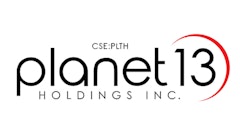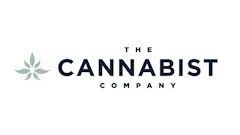
What is Onboarding?
Onboarding is not just orientation or going through new-hire paperwork, it is a managed process to integrate a new employee into your dispensary’s work environment, culture and business processes. Onboarding is designed to help the new hire have the tools and information to do their job and help your dispensary be successful.
The onboarding process can be informal—without an explicit plan—or formal, which is a written set of plans and experiences. However, most human resources experts agree that a formal approach produces better results. This process focuses on the critical experiences of the new hire over several months, up to the first year, based on the ideal that when new hires feel welcome and prepared for their job, they will be able to contribute to the company’s success faster and more efficiently, and will be more likely to remain with your dispensary for the long term.
And while new hires do have important paperwork to complete, making them do paperwork on their first day is not welcoming nor does it help them get acclimated to your dispensary culture. In fact, a best practice is to have the paperwork completed before the new hire arrives. You can automate new hire paperwork (and reduce manual paper files) so that all employee documentation is completed once before being fed to various online files and databases prior to their first day. Several companies offer this service and will take care of federal, state and local tax forms, direct deposit and payroll processes, policy authorization information, emergency contacts forms, security/network access, and other new hire paperwork. You can also send an electronic copy of your employee handbook to new hires prior to their first day so that they can become familiar with your dispensary’s code of conduct, vision and company policies.
There are three main goals of an onboarding process:
1. Acclimate: Integrating a new employee is more than showing them their workstation or the location of the break room. More in-depth information and demonstration is necessary for the new hire to understand the workplace, the dispensary’s vision, what is expected from them, and how their specific role will help achieve the dispensary’s goals. At the same time, new hires need to understand what they can expect from your dispensary, such as supervisory support, regular performance reviews, and the tools available to them to perform the job.
2. Engage: An effective onboarding plan offers an opportunity to engage new hires’ minds and skills, to demonstrate the importance of the dispensary standards, and to build a positive and supportive relationship between a new hire and management. For new hires, onboarding also includes discussing all experiences that they may have expected but were disappointing, unpleasant or didn’t occur, which will shape their perception of the dispensary and influence their level of engagement. HR experts note that there is a high correlation between employees who are engaged and a company’s profitability and customer satisfaction.
3. Retain: Losing an employee because they are confused, don’t feel a part of the team, or lack support and resources often can be linked to poor or non-existent onboarding. Because of the monetary impacts of recruiting, interviewing and training to replace an employee, as well as hidden costs of lower productivity and reduced morale—employee retention should be a driving force in your onboarding plan. Gallup identified a high correlation between engaged employees and retention. A structured onboarding process increases the likelihood of employee engagement and thus leads to employees who are more likely to stay with a dispensary than those new hires who were not in an onboarding program.
Everyone in the organization needs to understand that they have some responsibility for acclimatizing and engaging new hires.
Create a Plan
Before developing your dispensary’s onboarding program, or revising the one you currently use, consider and answer these questions.
1. When will the onboarding process begin and end? What impressions do you want on the first day? After one month? After 90 days? Effective onboarding requires good planning and integration with other HR functions. For example, as soon as a dispensary has made the decision to hire an employee, there should be a plan which prioritizes learning experiences and exposure to company methods and culture for new employees during the first 30 days. Once the new hire is on the payroll, additional plans for structured experiences and education should be in place for the next 30 days to 90 days.
2. What are those experiences new employees need to navigate? Because resources are limited, an onboarding plan needs to prioritize what it is about the dispensary culture, work environment, performance expectations, company policies and the customer experience that needs to be communicated to the new hire. Decisions need to be made about which experiences are most important, and what the timing should be. These decisions are based on which business processes and experiences will have the most impact on the new hire’s success or failure. Additionally, dispensaries need to make decisions about which experiences should be shaped specifically for the new hire. Those decisions should be allowed to occur more organically and at the discretion of the manager or supervisor.
3. Who in the organization is responsible for implementing the program? While HR might design the process, management and dispensary co-workers are critical to onboarding success. Everyone in the organization needs to understand that they have some responsibility in acclimating and engaging new hires. Management needs to participate in the onboarding process in a significant way, using the onboarding process to ensure new hires feel respected, valued and appreciated. Managers who offer specific encouragement and provide guidance during the new hire’s first few months will help to establish a positive relationship between the employee and the manager and will likely be a big factor in employee satisfaction. Ensuring that the key players are available and accessible during the onboarding process is an important part of the planning that needs to be done.
4. How will feedback and success be measured? Part of the onboarding plan design is identifying what success looks like. New hires represent a very expensive investment: How will you measure the return on this investment? How will the new hire behave after participating in the onboarding process? What is a reasonable time-frame for the new employee to know the job and be able to perform it well? If the job is customer-facing, how should the dispensary obtain feedback from customers regarding the employee’s service or commitment to company goals? Another piece of feedback that is important to include is whether the new hire’s actual experiences met with expectations—both the expectations of the new hire and the expectations of management and team members.
New hires represent a very expensive investment: How will you measure the return on this investment?
Steps to Onboarding
There is no “one-size-fits-all” approach or a single “correct” process for onboarding because every new hire is unique, generational or learning differences may exists, and each job role may require different experiences and planning. While situations will vary, an effective onboarding program is directly aligned to the dispensary’s strategy and business goals, and will have these basic elements:
Easily accessible information about how the dispensary works. At a minimum, this is information about your operating hours; when team members take breaks; how customer inquiries are handled; who is who and their roles in the organization; how to contact team members and managers; whether there is a dress code; how sales are tracked; inventory is maintained; and how team members are expected to interact with one another. Spread this information over a period of time—don’t try to cram 15 hours of information into the first day!
Formal and informal information about the company culture, the dispensary’s goals and values, and compliance requirements (such as basic legal and policy rules). Provide the new employee with current information on what the dispensary operations are designed to accomplish, your business model and what the future looks like. Don’t just hand out an organizational chart to explain lines of communication. Rather, discussions with peers and supervisor(s), attendance at meetings and structured experiences demonstrating the dispensary’s cultural norms and behaviors will provide both context and meaning that looking at an organizational chart cannot provide.
A copy of the job description and a written statement of the new hire's responsibilities and objectives. A discussion or series of discussions regarding the job and performance expectations should be planned during the new hire’s first weeks. Again, don’t just rely on a job description to inform the new hire how their role fits into the big picture and how the dispensary strategy relates to the job. Whenever possible, progressive work assignments should be made so that the new employee is always experiencing success.
If possible, make lunch the first day a group event, or have the supervisor take the new hire to lunch. Look for ways for the new hire to socialize and get to know team members. Help the new employee make connections that can help with their job performance, understanding the company’s operations and how team members support one another.
Tools should be accessible and working on Day 1 (such as a workstation, tablet or whatever is needed to perform the job). Ensure that product information is available, the work area is clean, safety equipment if required is ready and all the necessary resources are available to the employee to help them perform their job efficiently and with confidence.
Choose an employee peer to be the new hire’s “buddy.” This person will guide the new hire through the process, will be a “safe” person to whom all types of questions can be asked, and will help the new hire navigate the dispensary’s unspoken culture. Select a high-performing employee who will be a good influence on the new hire, and who will be supportive during the onboarding process.
Meetings with key team members. These meetings will provide a sense of how the dispensary is organized and how the structure aligns with the dispensary’s sales targets, marketing goals and company mission. The new hire needs to establish work relationships and networks that will be available for support and questions.
Build their confidence. Managed experiences and shadowing of key staff and/or functions can help build the new hire's skills and confidence, and help them understand the importance of their job to the dispensary’s success. New front-line employees can perform at much higher levels when they understand how their day-to-day work contributes to the company’s goals.
Individual mentoring and role clarification to provide job role guidance and foster continued improved performance. Don’t start the new hire on the day the supervisor isn’t there! The supervisor should let the new hire know about the dispensary’s first-year performance review process, which should include both formal performance reviews and informal “check-ins” to find out how the new employee is performing and integrating with the dispensary. Early and consistent performance evaluations can offer new hires an initial sense of accomplishment when done as early career support. The new hire should be made aware if your dispensary’s 30/60/90/120-day performance reviews could include feedback from peers, management and customers.
Managing these first experiences is an on-going process that continues until the new hire is a fully committed member of the dispensary team. While implementing an onboarding process requires considerable effort and time, it will pay big dividends in increased engagement and productivity from employees who are as committed to making your dispensary successful as you are.


























